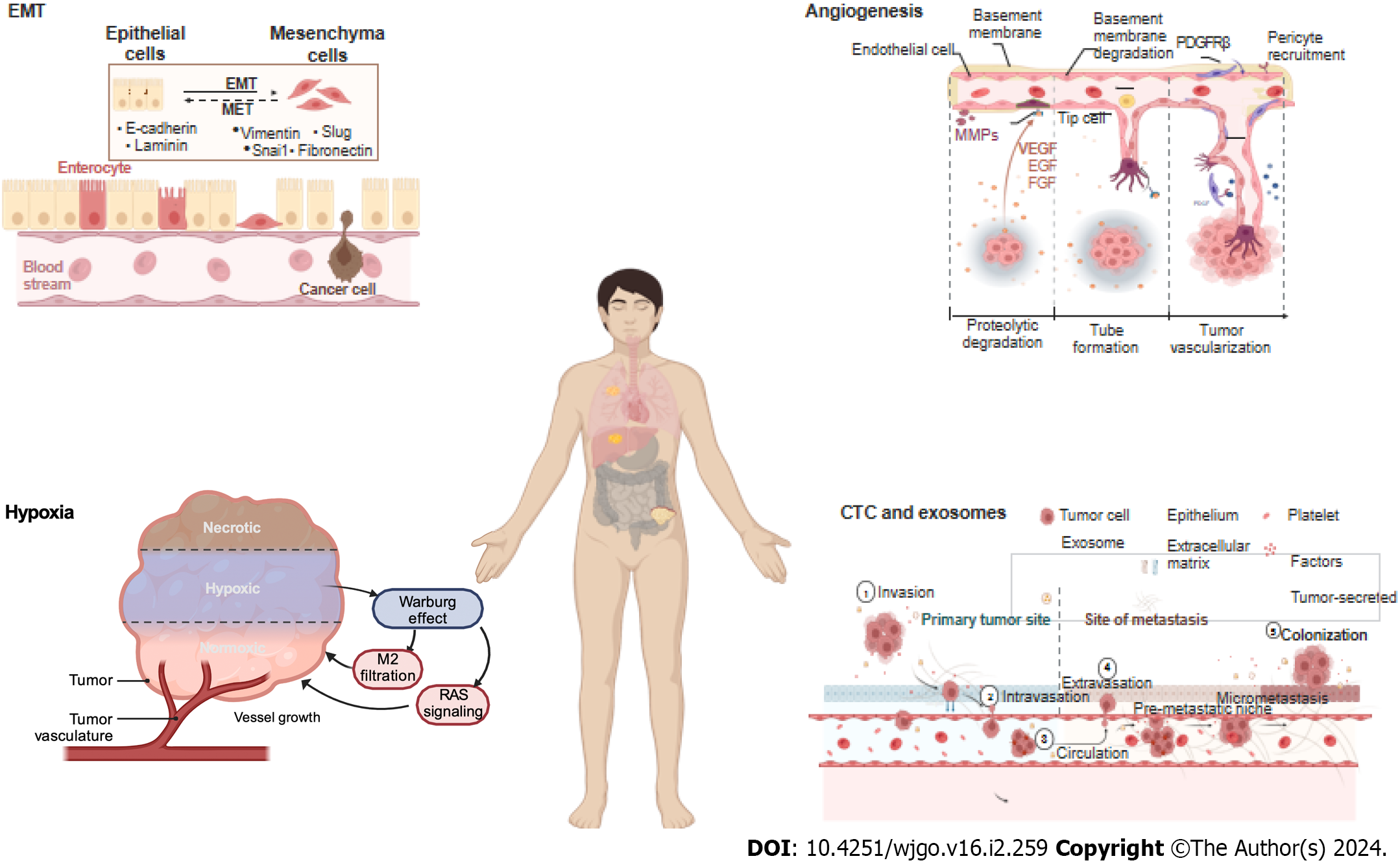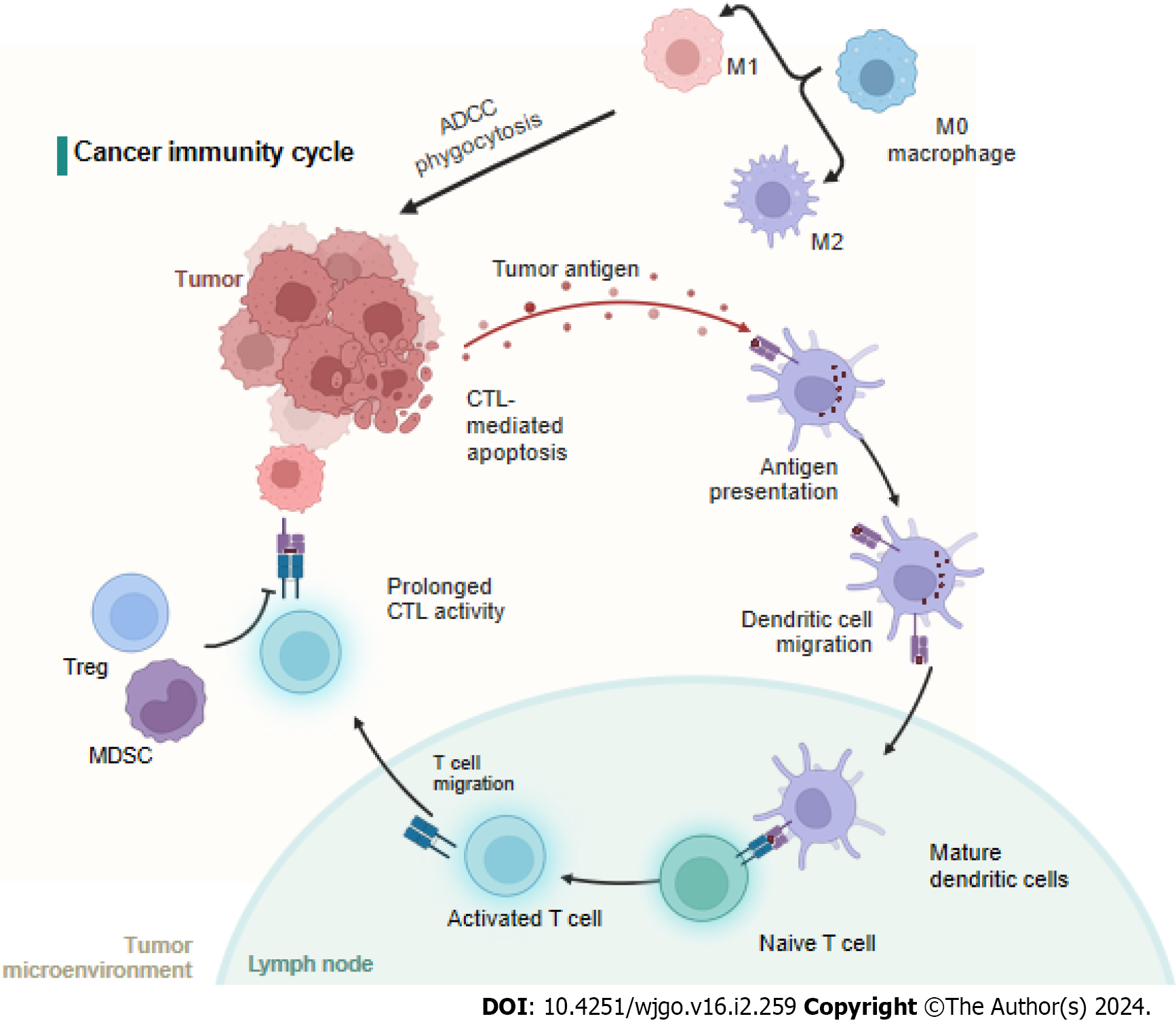Copyright
©The Author(s) 2024.
World J Gastrointest Oncol. Feb 15, 2024; 16(2): 259-272
Published online Feb 15, 2024. doi: 10.4251/wjgo.v16.i2.259
Published online Feb 15, 2024. doi: 10.4251/wjgo.v16.i2.259
Figure 1 Different genomic events, including point mutations, copy number alterations, and epigenetic instability (such as disruption to DNA methylation and differential splicing based on noncoding RNA), can engender sub clonal diversity, thus providing fuel for primary tumor and its metastasis.
Created with BioRender.com.
Figure 2 Key factors of metastasis: Epithelial-mesenchymal transition, angiogenesis, hypoxia, circulating tumor cells and exosomes.
EMT: Epithelial-mesenchymal transition; CTC: Circulating tumor cells. Created with BioRender.com.
Figure 3 Neoantigens created by oncogenesis are released and captured by dendritic cell for processing.
Dendritic cells present the captured antigens on MHCI and MHCII molecules to T cells, resulting in the priming and activation of effector T-cell responses against the cancer-specific antigens. Finally, the activated effector T cells move toward and infiltrate to the tumor bed. MDSC: Myeloid-derived suppressor cells; ADCC: Antibody dependent cell mediated cytotoxicity; CTC: Circulating tumor cells; CTL: Cytotoxic T cell. Created with BioRender.com.
- Citation: An SX, Yu ZJ, Fu C, Wei MJ, Shen LH. Biological factors driving colorectal cancer metastasis. World J Gastrointest Oncol 2024; 16(2): 259-272
- URL: https://www.wjgnet.com/1948-5204/full/v16/i2/259.htm
- DOI: https://dx.doi.org/10.4251/wjgo.v16.i2.259











